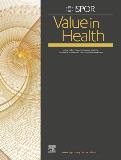
Real-world evidence on treatment outcomes can be an important aspect of the evidence basis for decision making if it is seen as credible. For real-world studies that are meant to test hypotheses about comparative-effectiveness or safety, a key aspect of credibility is that they are conducted transparently with tests that follow a prespecified analytic protocol. Preregistration of such study protocols on a public website would help build trust that their results can be used for decision-making purposes.
Establishing a Culture of Transparency for Real-World Evidence Studies...
The Real-World Evidence Transparency Initiative Partnership is a joint collaboration and ongoing effort between ISPOR, the International Society for Pharmacoepidemiology, the Duke-Margolis Center for Health Policy, and the National Pharmaceutical Council. The objective of this initiative is to establish a culture of transparency for study analysis and reporting of hypothesis evaluating real-world evidence studies on treatment effects.
Improving Transparency to Build Trust...
 The Real-World Evidence Transparency Initiative published a plan to encourage routine registration of noninterventional real-world evidence studies used to evaluate treatment effects. The report, “Improving Transparency to Build Trust in Real-World Secondary Data Studies for Hypothesis Testing—Why, What, and How: Recommendations and a Road Map from the Real-World Evidence Transparency Initiative,”
was published in the September 2020 issue of Value in Health.
The Real-World Evidence Transparency Initiative published a plan to encourage routine registration of noninterventional real-world evidence studies used to evaluate treatment effects. The report, “Improving Transparency to Build Trust in Real-World Secondary Data Studies for Hypothesis Testing—Why, What, and How: Recommendations and a Road Map from the Real-World Evidence Transparency Initiative,”
was published in the September 2020 issue of Value in Health.
More...
The report, “Improving Transparency to Build Trust in Real-World Secondary Data Studies for Hypothesis Testing—Why, What, and How: Recommendations and a Road Map from the Real-World Evidence Transparency Initiative,” was published in the September 2020 issue of Value in Health. The plan includes specifying the rationale for registering hypothesis-evaluating treatment effectiveness real-world evidence studies, the studies that should be registered, where and when these studies should be registered, how and when analytic deviations from protocols should be reported, how and when to publish results, and incentives to encourage registration.
Real-World Evidence Registry
The Real-World Evidence Registry provides researchers with a fit-for-purpose platform to register their study designs before they begin work to facilitate the transparency needed to elevate the trust in the study results.
More...
Real-world evidence studies can be used for hypothesis evaluation of treatment effects including safety (HETE studies). However these studies can also be perceived as less rigorous than clinical trials especially when not preregistered in a public setting such as ClinicalTrials.gov or the EU-PAS register.
ISPOR and its partners ISPE, NPC, and Duke Margolis have developed a simplified registration site especially for RWE HETE studies using secondary data. This searchable site provides a place for preregistration of studies that may not require registration for regulatory purposes but benefit from the rigor of transparent study methods and also provide a reference (such as a URL or doi) to share with peer reviewers, assessors, or other decision making bodies. Researchers can get started ‘here’ by creating a profile on the Open Sciences Framework and registering their study on the RWE Registry.
Shaking the Myth of Real-World Evidence
On-Demand Webinar
Learn more by watching the on-demand webinar, “Shaking the Myth of Real-World Evidence: Updates from the RWE Transparency Initiative.” This session provides updates from the initiative including a walk-through of the study registration site and updates on the special task force developing a standardized RWE protocol template.
Additional Resources
- Real-World Evidence Registry
 Good Practices Reports and Other ISPOR Reports from Value in Health
Good Practices Reports and Other ISPOR Reports from Value in Health
- HARmonized Protocol Template to Enhance Reproducibility of Hypothesis Evaluating Real-World Evidence Studies on Treatment Effects: A Good Practices Report of a Joint ISPE/ISPOR Task Force
- "Improving Transparency to Build Trust in Real-World Secondary Data Studies for Hypothesis Testing—Why, What, and How: Recommendations and a Road Map from the Real-World Evidence Transparency Initiative"
- "Good Practices for Real-World Data Studies of Treatment and/or Comparative Effectiveness"
- "Reporting to Improve Reproducibility and Facilitate Validity Assessment for Healthcare Database Studies V1.0"
- "Unlocking the Promise of Real-World Evidence" (Value & Outcomes Spotlight, Vol. 6, No. 5)
- ISPOR's Real-World Evidence Strategic Initiatives
Conferences & Summits

November 17, 2024
<p>In recent years, real-world evidence (RWE) has been increasingly used to inform regulatory, payer, and health technology assessment (HTA) decisions, as well as clinical guideline development. In addition, it has been recognized that the analysis of hypothetical estimands in clinical trials is necessary when the standard intention-to-treat (ITT) analysis does not answer the decision problem, usually because of treatment switching. </p><p><strong>An innovative framework for causal inference methods, target trial emulation, causal estimands and causal modeling guides the design and analysis of observational studies and clinical trials. </strong></p><p>Enroll in this in person short course to:</p><ul><li>Understand causal principles, causal diagrams (directed acyclic graphs; DAGs), and target trial emulation to avoid self-inflicted biases (eg, time-zero bias, immortal time bias).</li><li>Learn about causal methods for baseline confounding (multivariate regression, propensity scores) and time-varying confounding (eg, g-formula, marginal structural models with inverse probability of treatment weighting, and rank-preserving structural failure-time models with g-estimation).</li><li>Be able to propose appropriate estimands to ensure decision problems are directly addressed when analyzing observational data or data from clinical trials affected by treatment switching.</li><li>Discuss lessons learned from applied case examples in HTA, such as single arm-trials with external control arms or trials affected by treatment switching.</li><li>Identify recommendations regarding the use of causal inference methods and estimands and their application in causal modeling.</li><li>Discuss acceptance and barriers from an HTA agency perspective.</li></ul><h5>This short course is offered in-person at the ISPOR Europe 2024 conference.</h5><p><a class="button primary" href="/conferences-education/conferences/past-conferences/ispor-europe-2024">Register Here</a></p><p>*Conference attendance is not required to attend an ISPOR Short Course. Separate registration is required for conference attendees.</p><div fontscheme-block="2"><br /></div><div><strong fontscheme="2">PREREQUISITE:</strong> Students are expected to have a basic knowledge in epidemiologic studies and methods (including the concept of confounding).</div><p><strong>LEVEL:</strong> Experienced<strong><br />TRACK: </strong>Real World Data & Information Systems<br /><strong>HEOR Key Competency: </strong>5.2 Economic Analysis Alongside Clinical Trials<br /><strong>LENGTH: </strong>4 Hours | Course runs 1 day</p><p><strong style="background-color:transparent;color:inherit;font-size:inherit;text-align:inherit;text-transform:inherit;word-spacing:normal;caret-color:auto;white-space:inherit;">FACULTY MEMBERS</strong><br /></p><div><strong></strong></div><div><strong fontscheme="2">Uwe Siebert, MD, MPH, MSc, ScD</strong></div><div>Professor & Chair</div><div>UMIT - University for Health Sciences</div><div>Medical Informatics and Technology</div><div>Hall in Tirol, Austria and</div><div>Harvard Chan School of Public Health</div><div>Harvard University</div><div>Boston, MA, USA</div><div fontscheme-block="2"><br /></div><div><strong fontscheme="2">Felicitas Kühne, MSc</strong></div><div>Manager Outcomes Research</div><div>Health & Value Germany </div><div>Pfizer Pharma GmbH</div><div>Berlin, Germany and</div><div>Senior Scientist, Program Causal Inference</div><div>UMIT - University for Health Sciences</div><div>Medical Informatics and Technology</div><div>Innsbruck, Austria</div><div fontscheme-block="2"><br /></div><div><strong fontscheme="2">Nicholas Latimer, MSc, PhD</strong></div><div>Professor of Health Economics</div><div>SCHARR, University of Sheffield</div><div>Sheffield, Derbyshire, Great Britain and</div><div>Delta Hat Limited</div><div>Analyst</div><div>Nottingham, UK<strong style="background-color:transparent;color:inherit;font-size:inherit;text-align:inherit;text-transform:inherit;word-spacing:normal;caret-color:auto;white-space:inherit;"></strong></div><div><p><strong style="background-color:transparent;color:inherit;font-size:inherit;text-align:inherit;text-transform:inherit;word-spacing:normal;caret-color:auto;white-space:inherit;">Schedule:</strong><br /></p><p><strong><strong>Sunday, 17 November 2024 | Course runs 1 Day<br /></strong></strong>08:00-12:00 Central European Time (CET)</p></div><h5><a class="button primary" href="/conferences-education/conferences/past-conferences/ispor-europe-2024">Register Here</a></h5><p>*Conference attendance is not required to attend an ISPOR Short Course. Separate registration is required for conference attendees.</p><p><a target="_blank" href="/conferences-education/conferences/past-conferences/ispor-europe-2024/short-courses-overview/short-courses">Visit the ISPOR Europe 2024 Program page to view all short courses offered.</a></p><p><a href="/education-training/short-courses">Back to all short courses<br data-sf-ec-immutable="" /></a><br /></p>)
Short Courses & Webinars

November 17, 2024
<p>In recent years, real-world evidence (RWE) has been increasingly used to inform regulatory, payer, and health technology assessment (HTA) decisions, as well as clinical guideline development. In addition, it has been recognized that the analysis of hypothetical estimands in clinical trials is necessary when the standard intention-to-treat (ITT) analysis does not answer the decision problem, usually because of treatment switching. </p><p><strong>An innovative framework for causal inference methods, target trial emulation, causal estimands and causal modeling guides the design and analysis of observational studies and clinical trials. </strong></p><p>Enroll in this in person short course to:</p><ul><li>Understand causal principles, causal diagrams (directed acyclic graphs; DAGs), and target trial emulation to avoid self-inflicted biases (eg, time-zero bias, immortal time bias).</li><li>Learn about causal methods for baseline confounding (multivariate regression, propensity scores) and time-varying confounding (eg, g-formula, marginal structural models with inverse probability of treatment weighting, and rank-preserving structural failure-time models with g-estimation).</li><li>Be able to propose appropriate estimands to ensure decision problems are directly addressed when analyzing observational data or data from clinical trials affected by treatment switching.</li><li>Discuss lessons learned from applied case examples in HTA, such as single arm-trials with external control arms or trials affected by treatment switching.</li><li>Identify recommendations regarding the use of causal inference methods and estimands and their application in causal modeling.</li><li>Discuss acceptance and barriers from an HTA agency perspective.</li></ul><h5>This short course is offered in-person at the ISPOR Europe 2024 conference.</h5><p><a class="button primary" href="/conferences-education/conferences/past-conferences/ispor-europe-2024">Register Here</a></p><p>*Conference attendance is not required to attend an ISPOR Short Course. Separate registration is required for conference attendees.</p><div fontscheme-block="2"><br /></div><div><strong fontscheme="2">PREREQUISITE:</strong> Students are expected to have a basic knowledge in epidemiologic studies and methods (including the concept of confounding).</div><p><strong>LEVEL:</strong> Experienced<strong><br />TRACK: </strong>Real World Data & Information Systems<br /><strong>HEOR Key Competency: </strong>5.2 Economic Analysis Alongside Clinical Trials<br /><strong>LENGTH: </strong>4 Hours | Course runs 1 day</p><p><strong style="background-color:transparent;color:inherit;font-size:inherit;text-align:inherit;text-transform:inherit;word-spacing:normal;caret-color:auto;white-space:inherit;">FACULTY MEMBERS</strong><br /></p><div><strong></strong></div><div><strong fontscheme="2">Uwe Siebert, MD, MPH, MSc, ScD</strong></div><div>Professor & Chair</div><div>UMIT - University for Health Sciences</div><div>Medical Informatics and Technology</div><div>Hall in Tirol, Austria and</div><div>Harvard Chan School of Public Health</div><div>Harvard University</div><div>Boston, MA, USA</div><div fontscheme-block="2"><br /></div><div><strong fontscheme="2">Felicitas Kühne, MSc</strong></div><div>Manager Outcomes Research</div><div>Health & Value Germany </div><div>Pfizer Pharma GmbH</div><div>Berlin, Germany and</div><div>Senior Scientist, Program Causal Inference</div><div>UMIT - University for Health Sciences</div><div>Medical Informatics and Technology</div><div>Innsbruck, Austria</div><div fontscheme-block="2"><br /></div><div><strong fontscheme="2">Nicholas Latimer, MSc, PhD</strong></div><div>Professor of Health Economics</div><div>SCHARR, University of Sheffield</div><div>Sheffield, Derbyshire, Great Britain and</div><div>Delta Hat Limited</div><div>Analyst</div><div>Nottingham, UK<strong style="background-color:transparent;color:inherit;font-size:inherit;text-align:inherit;text-transform:inherit;word-spacing:normal;caret-color:auto;white-space:inherit;"></strong></div><div><p><strong style="background-color:transparent;color:inherit;font-size:inherit;text-align:inherit;text-transform:inherit;word-spacing:normal;caret-color:auto;white-space:inherit;">Schedule:</strong><br /></p><p><strong><strong>Sunday, 17 November 2024 | Course runs 1 Day<br /></strong></strong>08:00-12:00 Central European Time (CET)</p></div><h5><a class="button primary" href="/conferences-education/conferences/past-conferences/ispor-europe-2024">Register Here</a></h5><p>*Conference attendance is not required to attend an ISPOR Short Course. Separate registration is required for conference attendees.</p><p><a target="_blank" href="/conferences-education/conferences/past-conferences/ispor-europe-2024/short-courses-overview/short-courses">Visit the ISPOR Europe 2024 Program page to view all short courses offered.</a></p><p><a href="/education-training/short-courses">Back to all short courses<br data-sf-ec-immutable="" /></a><br /></p>)




